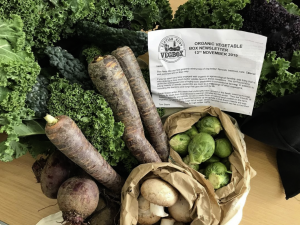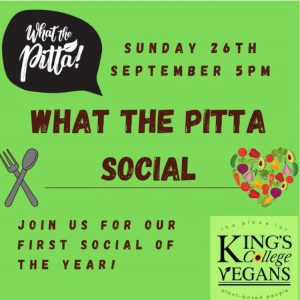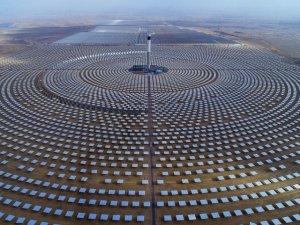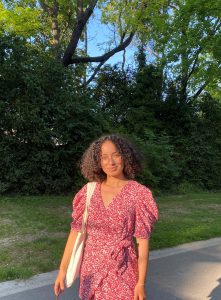This blog post provides a brief overview of some of the sustainability-focused societies and student groups at King’s. Read on to hear about their goals, how they engage students and how you can get involved. Find out more about all the societies and student groups at King’s on the KCLSU webpages.
KCL Climate Action Society
KCLCA aims to unite students from across the university to bring awareness on climate change and encourage action. Founded in 2019, the society quickly grew to become a large community of individuals who are all passionate about taking action and making change. Follow the society’s Instagram for updates on events, news stories and delicious plant-based recipes!
“The idea behind the society was thus to provide a platform for students to take action, in a context where we often feel powerless as individuals. The two courses of action were (1) organising events to be more aware and knowledgeable when it came to the many facets and issues related to climate change, from food and energy production, to fast fashion and waste pollution; and (2) campaigning at King’s to make and see some actual changes within the institution. […] Seeing so many people coming together and ready to put in the work gives me hope for the future.” – Anna Peran, co-founder of KCLCA.
KCL Environmental Society
KCL EcoSoc is dedicated to connecting students who share a passion for the environment, to providing opportunities to learn about environmental issues and campaign for change.
Past events have included webinars on Climate Change, Culture and Communication and Environmental Justice, a live cook-along with celebrity chef Max LaManna, as well as the London Energy Idea Challenge (organised in collaboration with 4 other London universities).
Find them on Instagram, Facebook and Twitter.
KCL Vegetarian and Vegan Society
KCL VegSoc brings together like-minded people interested in vegetarian and vegan food and lifestyles.
They are hosting their first event of the year on Sunday, September 26th: KCL VegSoc x What the Pitta. Join them to meet the society and enjoy some great (discounted) vegan food! Follow VegSoc on Instagram for more information and updates.
Hear from Bethan Spacey, outgoing president of the society, on her experience with VegSoc – “My first year in KCL VegSoc was brilliant. The year began with a What The Pitta social and I got to meet lots of people. Regular socials/food outings were held, as well as events like a sushi-making class, film screenings and talks. My favourite event was a volunteering trip to Friends Farm Animal Sanctuary, where we got to spend time with the animals. Last academic year, because I had enjoyed my experience with KCL VegSoc so much, I decided to apply for a committee position and ended up in the role of President. Unfortunately, this year was online, so we were very limited in what we could do, but our goal was to approach vegetarianism and veganism from a number of different perspectives: looking at the ethical implications, the environmental ramifications and the how it effects your health. Being online, however, meant that we were able to get some massive speakers for events such as Gene Stone and Carol J. Adams.”
King’s 4 Change
King’s 4 Change aims to encourage the King’s student community to act together for power, social justice and political change.
Recent campaigns run by King’s 4 Change include Just Transition, which focused on thinking about how we can make climate action more inclusive and attentive to the experiences of all people. Their Energy Campaign aimed to combat both climate injustice and economic injustice by encouraging people to switch to cheaper, fairer and more environmentally-friendly energy prodivers.
As put by King’s 4 Change co-founder Abigail Oyedele, “our aim is to train students in community organising methods […]. We want to give students the tools to get involved in community organising on a larger scale and make a change at King’s.”
KCL Green Finance Society
King’s Impact Investing Society (KIIS)
KIIS explores how financial instruments can address social and environmental challenges in addition to generating profitable returns. Since 2016, they have been supporting and inspiring students to pursue rewarding careers in these growing fields. Find out more.
KCL Environmental Law Society
Environmental Law & Regulation Society is a newly established King’s College London society that is dedicated to students who are interested in environmental laws and regulations, as well as their impact on businesses, law firms, and the public. The Society aims to explore environmental law from a legal, business, governance, and social perspective. Find out more.
King’s Innovative and Sustainable Dentistry
King’s Innovative and Sustainable Dentistry (KISD) is ONE society with TWO values at its core:
- Keep dental students at the forefront of technological innovations, allowing the integration of technology into routine practices in the future.
- Raise awareness about the impact of dentistry on the environment and give students the tools to practice dentistry sustainably.
Students for Global Health KCL
Those of you who are familiar with the UN Sustainable Development Goals (SDGs) will know that sustainability encompasses much more than environmental concerns. Specifically, SDG 3 “Ensure healthy lives and promote well-being for all at all ages” focuses on global health.
The King’s branch of Students for Global Health UK aims to empower students to envision a fairer and more just world in which equity in health is a reality for all, as well as take action on these issues. Last year, they hosted an incredible range of events covering themes such as Decolonising Healthcare, Global Mental Health, and Social Determinants of Health. Follow their Instagram for updates, resources and other informative posts, and sign up to their mailing list.
Fetch Ur Veg
 Fetch Ur Veg is a student-run cooperative providing weekly veg bag deliveries. Their overall goal is to encourage a healthy and sustainable lifestyle for students.
Fetch Ur Veg is a student-run cooperative providing weekly veg bag deliveries. Their overall goal is to encourage a healthy and sustainable lifestyle for students.
“Our main goal is to offer a more sustainable way of getting your vegetable groceries and maybe stepping out of your comfort zone and encouraging yourself to cook with different ingredients. Each bag comes with a leaflet with recipes and cooking tips. Contrary to the supermarket, the vegetables you get are still covered in dirt. So you get an overall healthier diet, with a diverse set of vegetables that are not stripped of their nutrients or chemically processed and cleaned, and it just really makes you appreciate the food a lot more!” – Mia Lewis, outgoing president of Fetch Ur Veg.
In addition to delivering weekly veg bags, Fetch Ur Veg offer volunteering opportunities to interested students and staff. Join them if you’re looking for a break from coursework and want to spend a couple hours outdoors, packing vegetables with a lovely group of people in Kentish Town. Follow them on Instagram for updates!
KCL Women and Politics Society
The Women and Politics Society aim to promote and enhance women’s leadership and influence in politics. Through discussion panels and conferences, the team hope to inform and inspire young women and others to participate in politics and engage in advocacy. Follow them on Instagram for more information.
The society also runs its own online magazine, The Clandestine – “a platform to lift those who have been forced into secrecy, up into that which is public.”
King’s Think Tank
King’s Think Tank is Europe’s largest student-led policy institute. It aims to provide a platform for students to engage with the world of policy and organises policy workshops, panel discussions and lobbying trips.
KTT run a blog with critical analyses of past and current issues, as well as publish their annual policy-recommendation journal, The Spectrum.
With seven policy centres, including the Education, Energy and Environment or Global Health centres, students interested in sustainability can write for the blog or policy journal.
KCL XR
The King’s branch of Extinction Rebellion. Their long-term goal is to combat the climate crisis and they collaborate closely with the broader XR Universities network.
KCLXR is still a relatively young society – join them to help them grow and meet like-minded individuals.
KCL Cycling Club
This club is for everything bikes! From city cruiser commuters to weekend warriors and lycra-clad bike lovers, this club is for anybody who likes to get on two wheels.
The KCC is much more than a cycling club, it is a cycling community.





